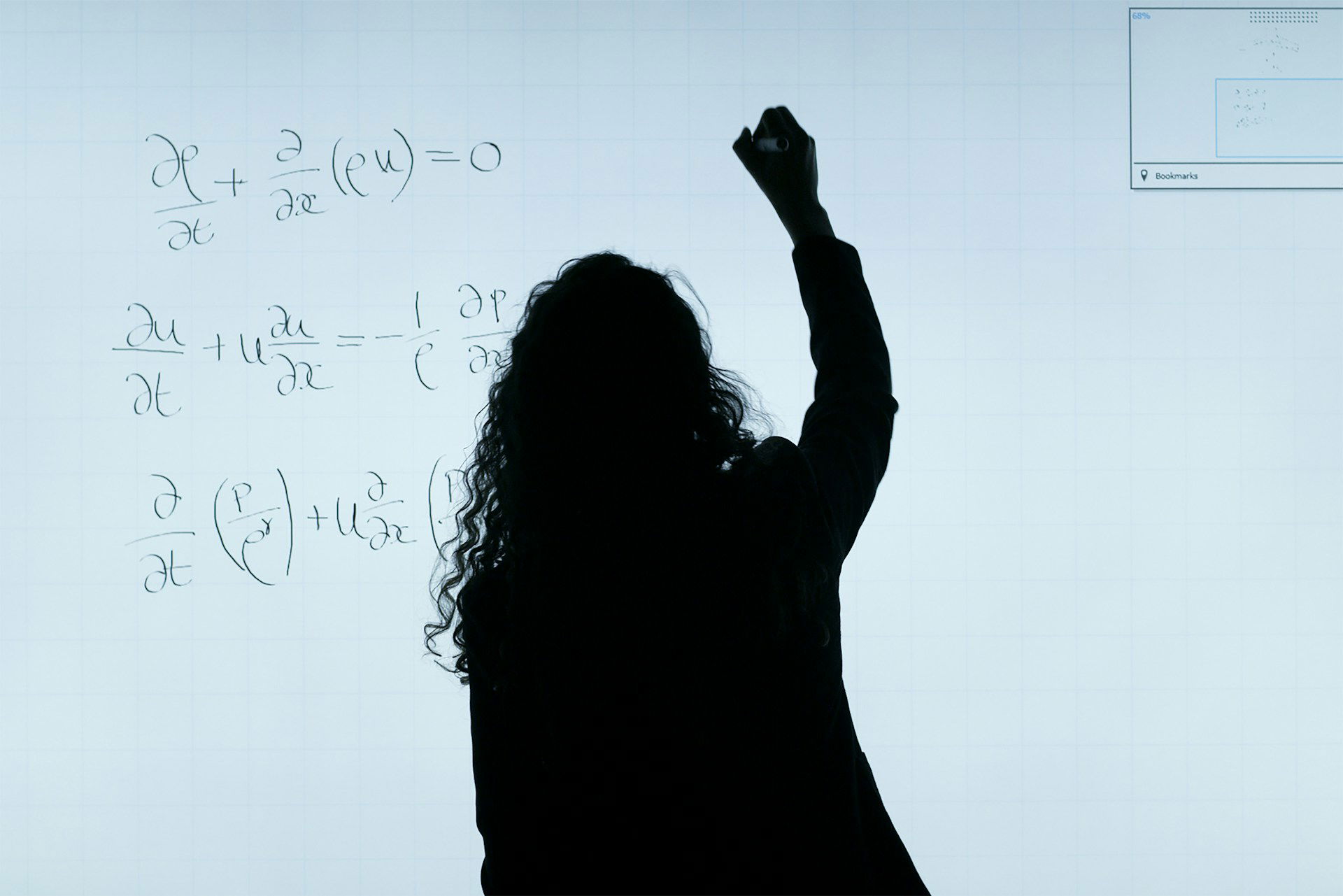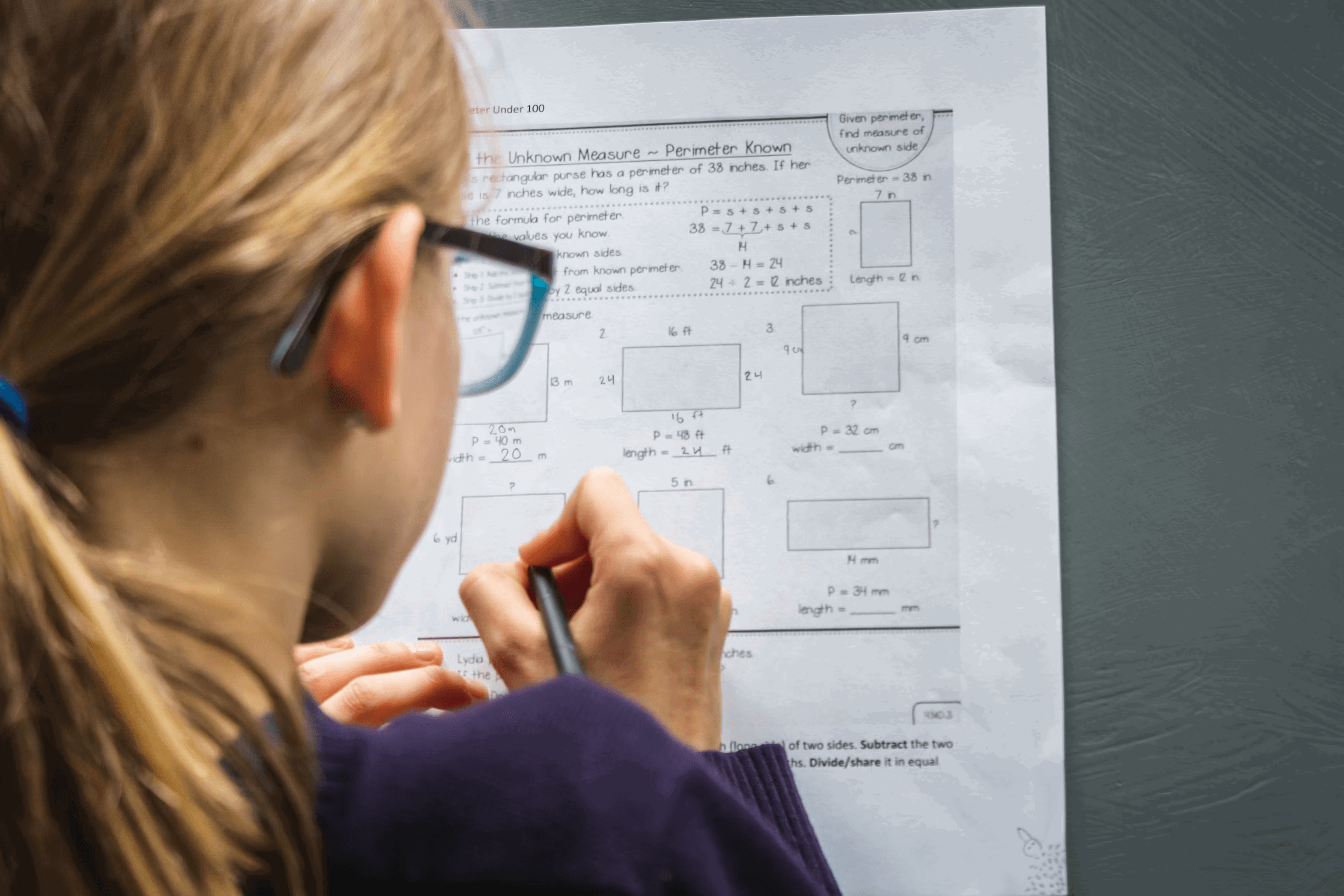Which IB Maths Level Should You Choose?

Mathematics is a compulsory subject in the IB Diploma Programme. This means that even if numbers aren’t your strong suit, you cannot skip Maths altogether. However, you do get to make some choices. Firstly, you can choose which Maths course to take – Analysis and Approaches or Applications and Interpretations. Secondly, it is up to you to decide at which level to study it – Standard Level (SL) or Higher Level (HL).
The IB Maths level you choose will define how many hours you spend learning concepts and solving problems, as well as the kind of material you’ll cover. Moreover, at the more advanced Higher Level, you’ll face a more rigorous assessment. External exams alone span 5 hours – compare this to 3 hours at Standard Level.
This may lead you to wonder – which IB Maths level is best for you? There are many things to take into account, from your love (or otherwise) of Maths to your overall academic workload, future university aspirations, and career plans.
This article is here to guide you through this decision-making process and help you choose the IB Maths path that perfectly suits your needs.
IB Maths Courses and Levels: What’s the Difference?
So, there are two IB Maths courses– Analysis and Approaches (AA) and Applications and Interpretations (AI).
Both AA and AI explore the same five key topics: Number and Algebra, Functions, Geometry and Trigonometry, Probability and Statistics, and Calculus. However, the way they approach these topics is what sets them apart. AA dives deeper into the theoretical side of things to help you understand the core Maths concepts and how they work. AI, on the other hand, focuses on the practical applications of Maths in the real world.
The difference between IB Maths courses lies not only in their content but also in the level of study – Standard or Higher. Taking a course at a Higher Level involves exploring the topics in greater depth and complexity compared to the Standard Level.
IB Maths Applications and Interpretations: Standard and Higher Level
As we have already noted, AI explores Maths applications in everyday situations, from statistical calculations to figuring out probabilities. The course will be particularly interesting for students who’d like to know how to use formulas to solve real-life problems. It also requires practical skills using a graphiс calculator.
The IB envisions 150 hours of teaching time to cover the SL course material. At the same time, HL students spend an extra 90 hours studying each topic in greater detail. Apart from this, there are many sub-topics designed specifically for the higher level.

For example, in the Number and Algebra topic, SL covers 8 sub-topics over 16 teaching hours, while HL adds 7 more sub-topics (like laws of logarithms and simplifying rational exponents) over an additional 13 hours.
Similarly, the Functions topic at SL has 6 sub-topics spanning 31 hours, but IB Higher Level Maths adds 4 more sub-topics (e.g., composite functions and natural logarithmic models) in an extra 11 hours.
IB Maths AI Assessment Structure
The assessment structure also differs across levels. Both SL and HL have two technology-allowed papers, but their duration and contribution to the final grade vary.
At SL:
- Paper 1 lasts 90 minutes and accounts for 40% of the grade.
- Paper 2 makes the same 40% contribution with the same 90-minute duration.
When it comes to HL:
- Paper 1 is a 120-minute exam awarding 30% of the overall grade.
- Paper 2 lasts 120 minutes as well and is responsible for 30% of your final result.
- Paper 3 takes 60 minutes and is worth 20% of the final grade.
Regardless of the level, all students complete an individual Mathematical Exploration as their Internal Assessment. It is worth 20% of their final grade.
IB Maths Analysis and Approaches: Standard and Higher Level
IB Maths AA is the right choice for those who are fascinated by the abstract side of Maths. In particular, it studies the underlying concepts and theories that form the foundation of all calculations.
With this pathway, you will spend more time solidifying your understanding of core topics, while proofs, theorems, and logical arguments will become central to the learning process. Overall, AA could be considered a “pure Mathematics” course in contrast to an applied AI.
Analyses and Approaches require 150 hours of teaching time to cover the Standard Level and 240 hours for the Higher Level. Again, the depth and breadth of material is greater at HL.

For example, SL Number and Algebra features 9 sub-topics with 19 teaching hours. HL introduces the same SL content plus 7 additional sub-topics spanning 20 more hours. The list of unique sub-topics at HL includes, among others, counting principles, partial fractions, complex numbers, and complex roots of equations.
As for Functions, SH has 20 hours worth of content and 11 sub-topics to learn. HL offers 5 additional topics with 11 extra hours. Only at HL, you can explore Polynomial functions, their graphs and equations, the factor and remainder theorems, odd and even functions, solutions of modulus equations and inequalities, and others.
IB Maths AA Assessment Structure
The assessment structure for SL and HL is similar to Applications and Interpretations.
- Both levels have a non-calculator paper 1, which accounts for 40% of your final grade at IB Maths Standard Level, and 30% at Higher Level. The duration of this Paper is 90 minutes and 120 minutes for SL and HL respectively.
- Paper 2 constitutes 40% of the final grade at SL with a duration of 90 mins. The same Paper, but with more questions and a longer duration (120 mins), will give you 30% of your final result at HL.
- Finally, HL has Paper 3 featuring two compulsory extended response problem-solving questions. You need to solve them within 60 mins to earn 20% of your final grade.
Aside from external assessments, there is also an Internal Assessment that gives 20% of the total grade for both levels.
Book free trial with our certified IB Maths teachers today
100 % of tutors are certified teachers and examiners
How to Choose the Level of IB Maths in the IBDP?
Making the right choice between SL and HL IB Maths is important, as it will impact your workload, depth of learning, and future academic opportunities.
Choosing the optimal level requires careful self-reflection and consideration of your long-term goals. While SL provides a solid foundation, HL demands a deeper commitment and passion for the subject. At this level, it is not enough to simply memorise the syllabus; you have to truly understand and love the subject. The time and effort spent learning HL Maths is worth it only if you’re passionate about numbers.
It is important to look at the requirements for the kind of university courses you may want to pursue as some will need you to take a HL course to be considered for entry. In addition the college may well prescribe a specific Maths choice, either AA or AI.
Focus on Your Strengths and Interests
So, the first thing you need to consider when picking between SL and HL is your relationship with Maths.
Do you find the subject stimulating and solving problems enjoyable? If so, Higher Level might be your perfect match. It delves deep into concepts and gives you a profound understanding of the ‘why’ behind the formulas.
On the other hand, if you find Maths interesting but not necessarily your favourite subject, or if your future studies don’t require a super strong foundation, then SL is probably a better choice. Without focusing too much on the core mathematical concepts, it still gives you the tools you need to succeed in your academic journey.
Your Previous Experience with Maths
IB HL Maths is for students who consistently performed well in Middle school. If you’re not someone who regularly achieves top marks, HL might be a tough climb. Even worse, it may take time away from your other IB subjects.
Remember, the IB Diploma Programme is all about well-rounded performance. So, if you struggled with Maths before, you should pick the easier option, i.e. SL.
Think About University Requirements
Some universities will give you credit for Maths courses if you score well on the HL exam. On the other hand, many programmes require HL as a prerequisite, while others might simply look for a certain grade at either SL or HL. If that is the case, you should keep in mind that it is always easier to earn a high grade at SL than at HL.
So, what does it all mean exactly? Well, you need to research your top university choices and see what kind of Maths requirements they have.
What are Your Future Academic and Career Goals
Think about where you see yourself after IB. If you’re aiming for a STEM field (Science, Technology, Engineering, and Math), a higher level of Maths will not just give you an advantage, it is often a mandatory requirement of prestigious HEI /Higher Education Institutions). However, if your future studies or career path doesn’t rely heavily on Maths, then SL will be sufficient. This concerns such fields as Medicine, Economics, Art, etc.
Consider Your Workload
Finally, you can’t forget about your overall workload. With 240 teaching hours, HL Maths is time-consuming and demanding. Make sure you can combine this workload with your other subjects without stressing out. A healthy balance is not only key to success in the IB program but also your well-being.
IB Maths Levels Conclusion
The choice of IB Maths level – Standard or Higher – will impact what and how much you will study along with how you feel throughout the process. A well-considered decision can leave you feeling accomplished and confident. However, biting more than you can chew may lead to unnecessary stress and frustration.
Regardless of your chosen Maths course and level, always strive to achieve your personal best. At TutorsPlus, we understand that navigating the IB Diploma Programme can be challenging. That’s why we’re here to support you on your academic journey.
Our experienced and passionate IB Maths tutors can guide you through even the most complex mathematical concepts and help you reach your full potential. Don’t hesitate to reach out and explore how our personalised tutoring services can lead you to academic success and a deep appreciation for the beauty of mathematics. We are always here for you – just contact us at +41 022 731 8148 or .
By Sara Lloyd
Sara has been an education consultant for TutorsPlus for 15 years, and is an expert on international IB education. She is also a parent of two lively children.















